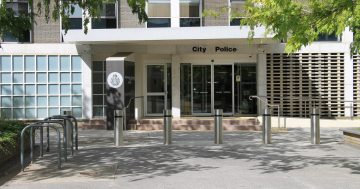
The LVC remission cap of $250,000 means the bigger projects won’t be brought forward, says the MBA. Photo: File.
The ACT Government is hoping to encourage a surge in construction projects by dangling a tax relief carrot as part of its COVID-19 economic recovery plan but at least one industry group says it won’t be enough.
Chief Minister Andrew Barr announced on Thursday (25 June) that the contentious Lease Variation Charge will be cut by 50 per cent and capped at $250,000 per project until 23 December for developments that need leases changed due to a change of use.
Construction must commence by 31 March 2021 regardless of when the development application was lodged or approved.
The LVC payments will be administered through the deferred payments system and the 50 per cent remission will take effect when construction commences.
Mr Barr announced the stimulus measure in an online address to the ACT Property Council, saying that if fully taken up, it would increase the pipeline of work over the next nine months by up to $150 million.
He said that of the current approved DAs with an LVC determination, over 90 per cent would be able to claim the full 50 per cent remission without reaching the cap.
”For the handful of much larger projects over the cap, they will be eligible to receive the remission of the maximum $250,000,” he said.
But Master Builders ACT says the $250,000 cap is too small and unlikely to entice developers to bring forward major projects.
The MBA, together with other industry associations, had written to the ACT Government calling for a time-limited uncapped 100 per cent LVC remission.
CEO Michael Hopkins said that while the remission would help many smaller projects, the $250,000 cap would severely limit the potential benefit of the remission.
“LVC for major projects can be as high as $3 million or $4 million, or higher. This will mean that individual projects which could generate hundreds of jobs will probably stay on hold,” he said.
ACT Property Council executive director Adina Cirson welcomed the government’s announcement, saying the majority of projects that are ready to go will benefit enormously.
She acknowledged that the cap meant the remission would not greatly assist the bigger projects but that would be the subject of further conversation with government about getting those off the ground.
Ms Cirson said the industry was very nervous about the pipeline of work drying up and what it needed were measures to boost the supply of work.
She said it wasn’t only about jobs, but also housing supply and affordability.
”If we don’t have supply the price of housing will go through the roof in this town,” she said.
The government says the Lease Variation Charge is based on the principle that the community should share the benefit from an increase in the value of a lease arising from changes to the uses permitted under the original lease.
It is set at the rate of 75 per cent of the uplift in value of the lease, which the government says allows a significant proportion of the increased value to be retained for the community’s benefit, while providing an incentive for development.
For a development involving a lease variation with a $500,000 increase in value, the Lease Variation Charge would be $375,000, but this would reduce to $187,500 under the relief measure.
Community housing providers would benefit more because they would be eligible for an additional remission of 25 per cent under the Affordable Rental Development Concession Remission, reducing the LVC payable by a further $93,750 and leaving a LVC amount payable after both remissions of $93,750, with the developer getting the benefit of $406,250 value uplift.
Mr Barr said the government was also considering further reforms to speed up development approvals, without weakening essential scrutiny and compliance.
He said the government will continue to roll out projects identified in its Infrastructure Plan such as the SPIRE project at Canberra Hospital, light rail and the $600 million, five-year program of public and social housing.





















